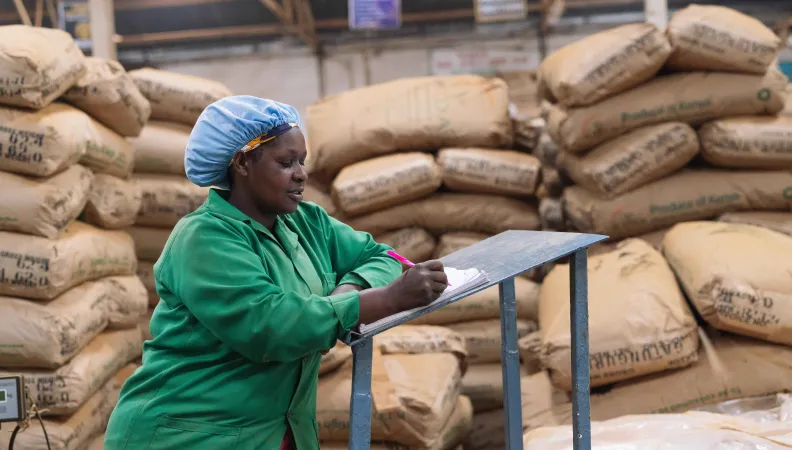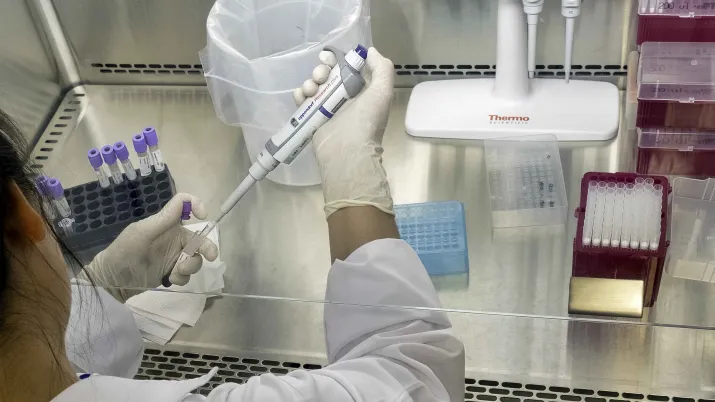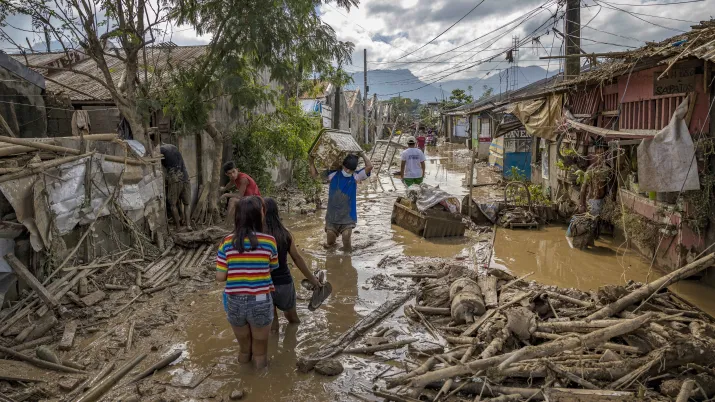Share the page
Project 108 of the EU CBRN Centres of Excellence - Securing the Food Chain in the African Atlantic Façade
Project
Published on

-
Project start date
-
Status
Ongoing
-
Project end date
-
-
Financing amount (Euro)
-
3.5m
-
Country and region
-
Benin, Cameroon, Gabon, Ivory Coast, Liberia, Mauritania, Morocco, Senegal, Sierra Leone, Togo, Africa
-
Funders
-
Partners
-
GIZ, University of Liège, France Veterinary International

The project aims to improve capacities on food safety, food defense and food fraud in the African Atlantic Façade.
Securing the Food Chain in the African Atlantic Façade
In the African Atlantic Façade (AAF) region, local populations and economies face major food risks related to contamination, whether natural, accidental or intentional, and to fraud affecting product quality. Every year, unsafe food is estimated to cause 137,000 deaths and 91 million cases of illness across Africa, disproportionately affecting vulnerable groups, particularly children. Beyond the human toll, food-borne risks also undermine economic stability, hinder trade and erode consumer trust.
Moreover, many countries in the region continue to face fragmented or outdated legal frameworks, limited technical capacity, and inadequate systems for emergency response and coordination.
Addressing these issues requires a comprehensive, multisectoral approach that strengthens prevention, detection, and crisis management capabilities.
Project 108: a comprehensive EU response
In this context, the EU Chemical, Biological, Radiological and Nuclear (CBRN) Risk Mitigation Centres of Excellence (CoE) Initiative launched Project 108 to support ten partner countries of the African Atlantic Façade (AAF) region -Benin, Cameroon, Gabon, Côte d’Ivoire, Liberia, Mauritania, Morocco, Senegal, Sierra Leone, and Togo- in strengthening their capacities related to food safety, food defense, and food fraud control.
Officially launched in November 2024 for a duration of 36 months, the project focuses on three critical pillars:
- food safety: preventing natural or accidental contamination) ;
- food defence: protecting against intentional contamination including those caused by criminal or terrorist activities);
- food fraud: combating deception on the nature, quality or origin of food products for economic gain.
Ensuring safe, healthy, and trusted food for all
The project’s core objective is to reinforce the legal frameworks, analytical capacities, and crisis preparedness of partner countries to ensure safe, healthy, and trusted food for all, through a multi-dimensional and inclusive approach.
More specifically, the project aims to achieve the following specific objectives:
- Strengthen food safety control capacities at all levels of the food chain: this includes developing analytical capacities (particularly through laboratory activities), strengthening inspections and surveillance mechanisms, and improving operational procedures. The project also aims to promote regional cooperation, raise awareness among stakeholders (authorities, professionals, civil society) and encourage the active involvement of women and community actors.
- Improve emergency preparedness and crisis management for food safety incidents by developing national and regional response plans and training key stakeholders.
Project 108 is structured around six interconnected Work Packages:
- Legal framework review and enhancement
- Analysis of the national and regional technical capabilities and standards
- Awareness-raising on food safety, defence and fraud
- Capacity building: tailored training
- Development of food defence and food fraud plans using practical scenarios
- Simulation of food safety crises through tabletop and field exercises
To go further - The EU CBRN Centres of Excellence
Chemical, Biological, Radiological and Nuclear risks can either be accidental (transportation of dangerous goods), deliberate, or natural (outbreak of infectious disease). It is within this context that the European Commission has recognised the increasing importance of hazardous material management as a key element in the overall CBRN contingency strategy.
As a result, the EU CBRN Risk Mitigation Centres of Excellence (CoE) Initiative was created in 2010 to promote international cooperation in CBRN risk management. Funded and implemented by the European Union, it brings together experts and professionals from 64 Partner Countries across 8 regions regions that cooperate at the regional and international level to strengthen CBRN risk mitigation and to promote a global culture of safety and security. Supported through the Neighbourhood, Development and International Cooperation Instrument (NDICI) – Global Europe, the Initiative represents the EU’s largest civilian external security programme.
The EU CBRN Centre of Excellence is led by the European Commission’s Service for Foreign Policy Instrument (FPI), in close coordination with the European External Action Service (EEAS). The European Commission’s Joint Research Centre (JRC) provides technical support to Partner Countries, while the United Nations Interregional Crime and Justice Research Institute (UNICRI) ensures coherent and effective national, regional and international cooperation. Other relevant International and/or Regional Organisations and experts also contribute to the Initiative.
Resource for download
Sustainable Development Goals
SDG2 - Zero hunger
End hunger, achieve food security and improved nutrition and promote sustainable agriculture

On the same topic
Strengthening nuclear safety in Africa
Ongoing
2024 - 2028
Funders : European Union, Government of France





